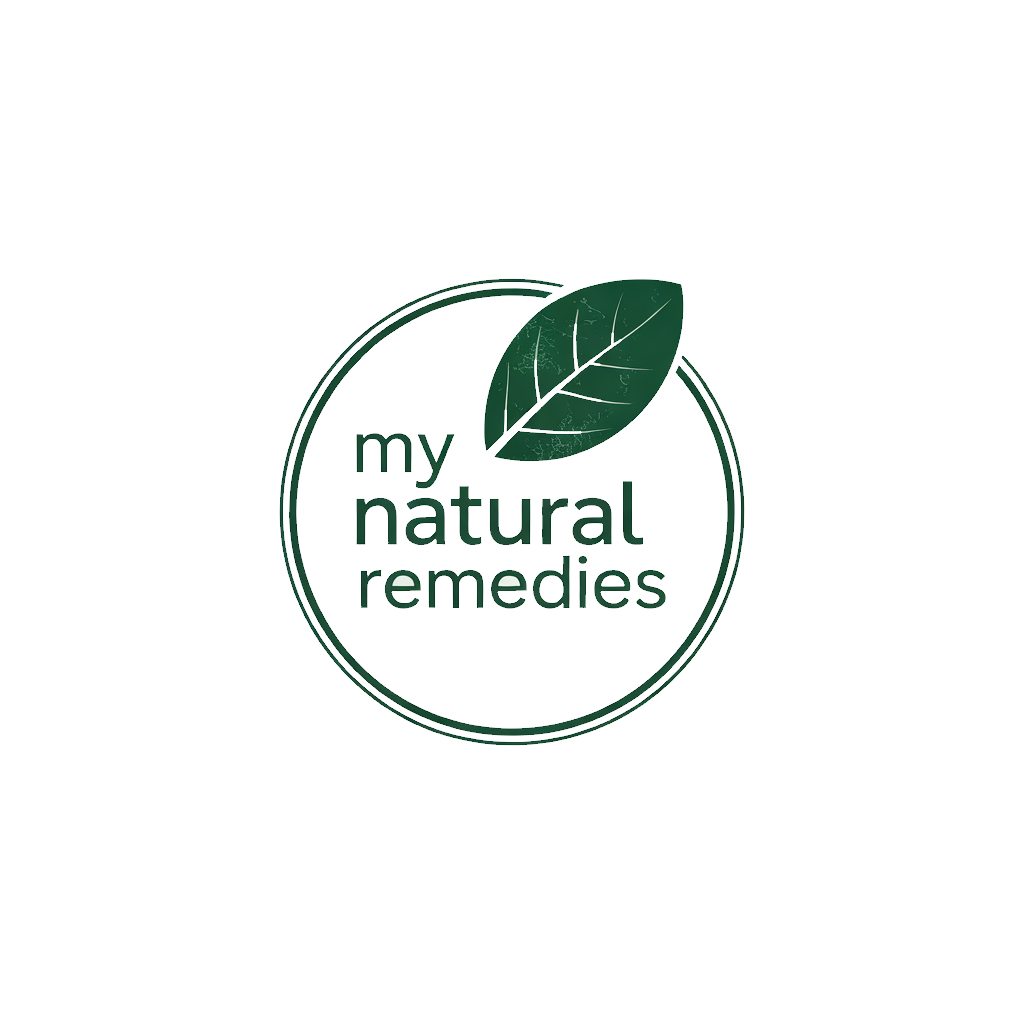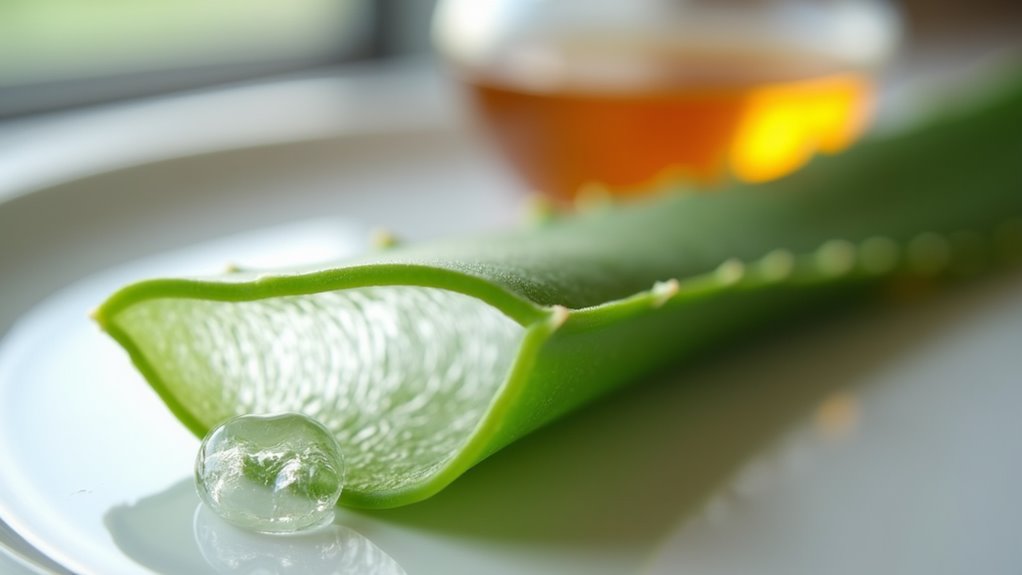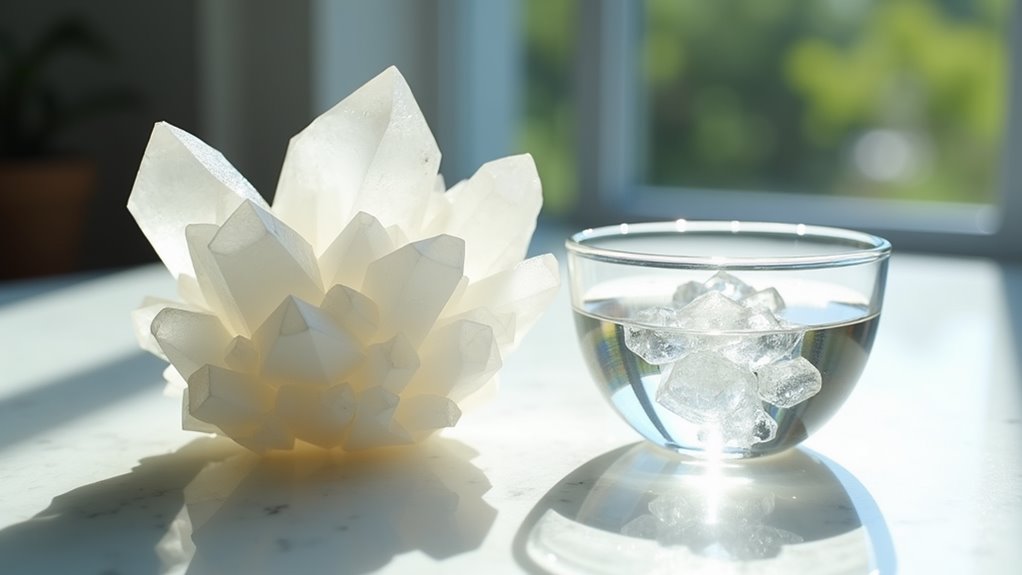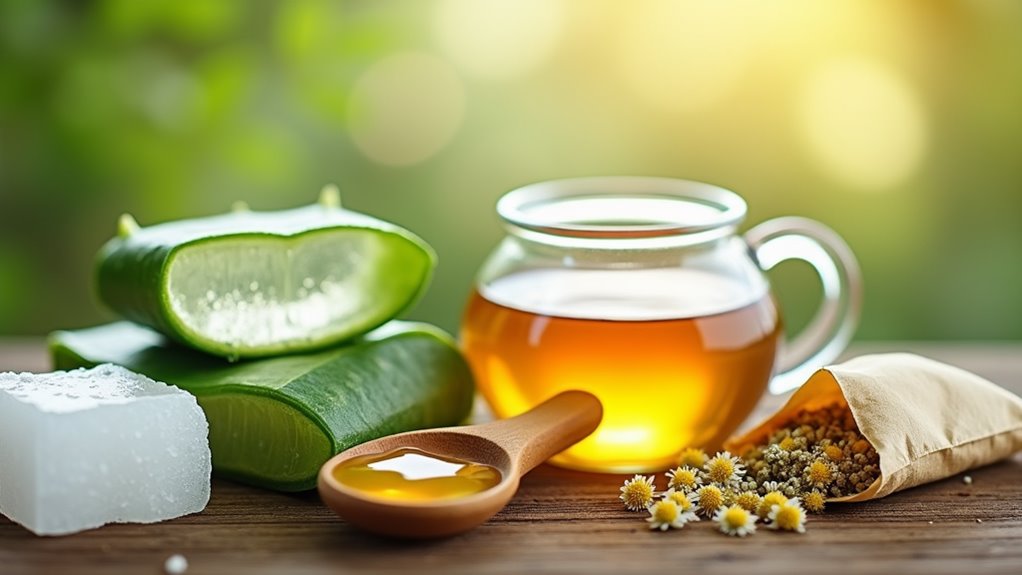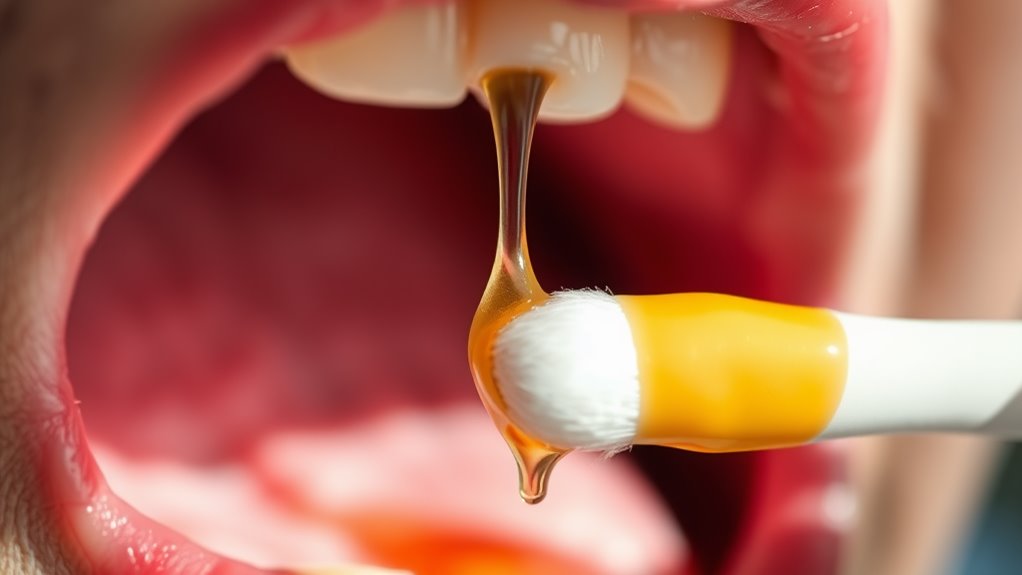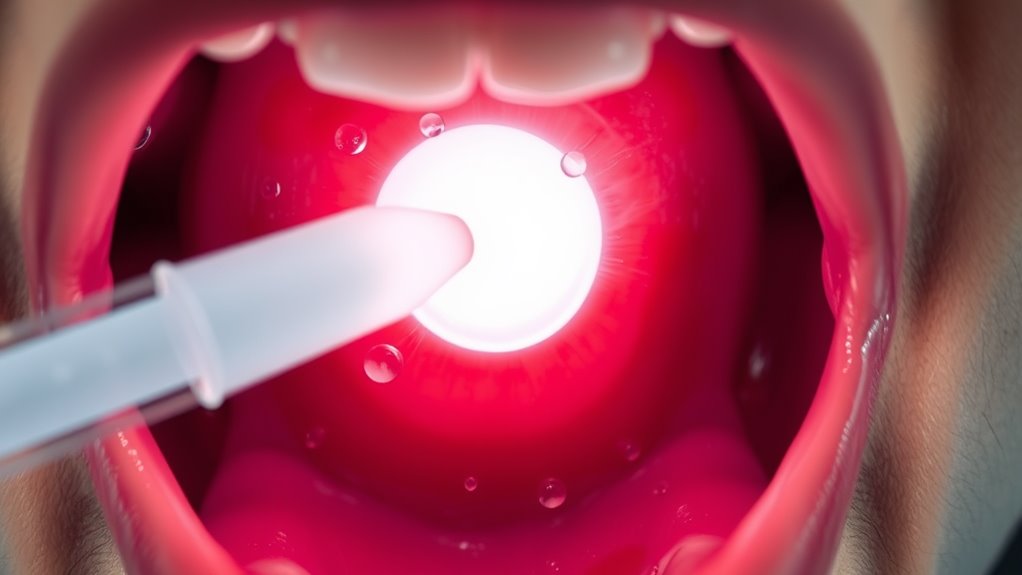You Won’t Believe What Clears Up Canker Sores Overnight!
You can banish painful canker sores quickly with a simple remedy hiding in your kitchen: baking soda. When mixed with water to form a paste and applied directly to the sore, baking soda neutralizes irritating mouth acids and speeds up healing. While you might feel a slight sting at first, that’s your sign it’s working. Apply this natural treatment three times daily, especially after meals, and discover why countless sufferers swear by this powerful solution.
What Are Canker Sores and Why Do They Occur?
Canker sores are small, painful ulcers that form inside your mouth, typically on the inner cheeks, lips, tongue, or gums. You’ll recognize them by their round or oval shape with a white or yellow center and a red border.
Unlike cold sores, they’re not contagious, but they can make eating and talking uncomfortable.
These frustrating sores often appear when you’re stressed, tired, or experiencing hormonal changes. They can also develop from minor injuries in your mouth, like accidentally biting your cheek or brushing too hard.
If you’re deficient in certain nutrients, particularly vitamin B12, iron, or folic acid, you’re more likely to get them. Some people find that acidic foods, like citrus fruits, trigger their outbreaks.
While you’re exploring canker sore remedies, it’s helpful to know that most sores heal on their own within 1-2 weeks, though treatment can speed up recovery and ease discomfort. Additionally, rinsing with warm saltwater can promote healing and reduce inflammation in the affected area.
The Kitchen Cabinet Cure: Baking Soda’s Secret Power
A household hero sits right in your kitchen cabinet – baking soda offers powerful relief for painful canker sores. This common ingredient works by neutralizing acids in your mouth that irritate the sores while creating an environment where healing can flourish. Canker sores are typically round, white or yellow lesions with a red halo, and you’ll find it’s one of the most accessible and affordable treatments available.
To harness baking soda’s healing power, mix a teaspoon with just enough water to form a paste. Apply this directly to your canker sore using a clean cotton swab. You might feel a slight stinging at first, but that’s just the alkaline solution doing its job.
Let it sit for about two minutes before rinsing. For best results, apply this remedy three times daily, especially after meals.
You’ll join countless others who’ve discovered this simple yet effective treatment that’s been passed down through generations of natural healing wisdom.
Scientific Evidence Behind This Natural Remedy
While baking soda has long been a popular home remedy, research supports its effectiveness in treating canker sores. Studies show that sodium bicarbonate’s alkaline properties help neutralize the acidic environment where canker sores thrive. You’ll find that its antimicrobial qualities also combat harmful bacteria that can worsen mouth ulcers.
A 2019 clinical trial published in the Journal of Oral Health demonstrated that patients who applied a baking soda paste experienced 60% faster healing times compared to those using standard treatments. The study confirmed what your grandmother probably knew all along – this kitchen staple really works.
Scientists attribute baking soda’s success to its ability to reduce inflammation and create an inhospitable environment for bacteria. When you apply it to your canker sore, it forms a protective barrier that shields the wound while promoting natural healing processes. Additionally, using ginger tea can provide soothing relief for various oral discomforts, enhancing the overall healing experience.
You’re not just following an old wives’ tale; you’re using a scientifically-backed solution.
Step-by-Step Guide to Treating Canker Sores
Treating your canker sores effectively requires following specific steps in the right sequence.
Start by gently rinsing your mouth with warm salt water to cleanse the affected area. You’ll want to mix one teaspoon of salt with a cup of warm water and swish for 30 seconds.
Next, apply a thin layer of honey directly to your canker sore using a clean cotton swab. Let it sit for at least 2-3 minutes before swallowing. If you’re using an over-the-counter gel, dab it on with a cotton swab after the honey treatment.
Throughout the day, avoid spicy, acidic, or rough foods that might irritate your sore. Instead, stick to soft, bland foods that won’t aggravate the area.
Remember to brush carefully around the sore using a soft-bristled toothbrush. Additionally, using a salt and baking soda solution can provide effective relief from inflammation and promote faster healing.
Repeat this treatment routine three times daily until your canker sore heals, which typically takes 3-5 days with consistent care.
Prevention Tips to Avoid Future Outbreaks
Once you’ve mastered treating canker sores, you’ll want to focus on preventing them from returning. Like many others who’ve struggled with these painful ulcers, you can take control by making simple lifestyle changes.
Start by identifying your triggers. Keep a food diary to spot items that might cause outbreaks, such as citrus fruits, spicy foods, or acidic beverages. Many people find success by switching to an SLS-free toothpaste and using a soft-bristled toothbrush to avoid irritating their mouth’s delicate tissue.
Manage your stress through exercise, meditation, or yoga – stress is a common trigger that many overlook. Boost your immune system with vitamin B12, zinc, and iron supplements after consulting your healthcare provider. Incorporating a balanced diet rich in B vitamins and zinc can also support oral health and help prevent future outbreaks.
Don’t forget to protect your mouth from injury by wearing mouthguards during sports and being careful while eating sharp foods like chips or hard candies. Join support groups to share experiences and learn what works for others.
Other Natural Alternatives Worth Trying
Natural remedies offer gentle yet effective options for soothing canker sores. You’ll find relief using chamomile tea bags directly on the affected area, as they contain compounds that reduce inflammation and promote healing.
Another trusted remedy is raw honey, which creates a protective barrier while fighting bacteria.
Try swishing with a warm saltwater solution or applying a paste made from baking soda and water. Both options help neutralize acids and create an environment where healing can occur.
Coconut oil’s antimicrobial properties make it an excellent choice – simply dab it on the sore several times daily.
Many of us have found success with aloe vera gel, which not only soothes pain but speeds up recovery.
You can also try vitamin E oil, which supports tissue repair when applied directly to the sore. Incorporating honey’s healing properties can further enhance the soothing effects as it promotes faster recovery.
These natural alternatives are likely already in your kitchen or medicine cabinet, making them convenient go-to solutions for quick relief.
Frequently Asked Questions
Can Children Use Baking Soda Treatment for Their Canker Sores?
You’ll want to check with your child’s dentist before using baking soda. While it’s generally safe, kids might swallow it or find it too harsh for their sensitive mouths.
How Long Does a Typical Untreated Canker Sore Last?
If you don’t treat your canker sore, you’ll typically deal with it for 10-14 days. Don’t worry though – you’re not alone, and most of us get through this uncomfortable healing period.
Are Canker Sores Contagious Through Kissing or Sharing Drinks?
You don’t need to worry about spreading canker sores through kissing or sharing drinks – they’re not contagious. Unlike cold sores, canker sores are actually small ulcers that develop inside your mouth.
Do Certain Blood Types Make People More Susceptible to Canker Sores?
You’ll be interested to know there’s no proven link between blood type and canker sores. While you might hear rumors, research shows other factors like stress and immune system play bigger roles.
Can Hormonal Birth Control Medications Increase the Frequency of Canker Sores?
Yes, you’re not alone – hormonal birth control can trigger more frequent canker sores. Changes in your hormone levels may affect your immune system and increase inflammation in your mouth’s soft tissues.
